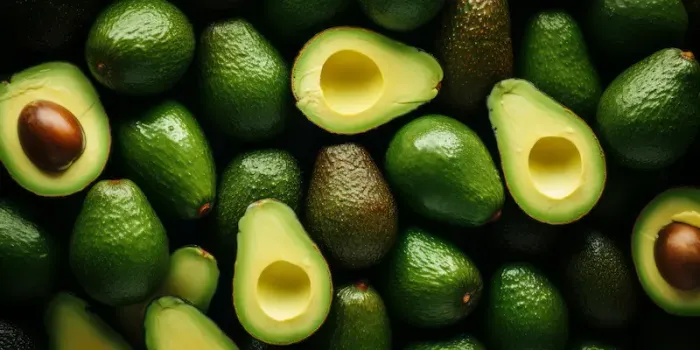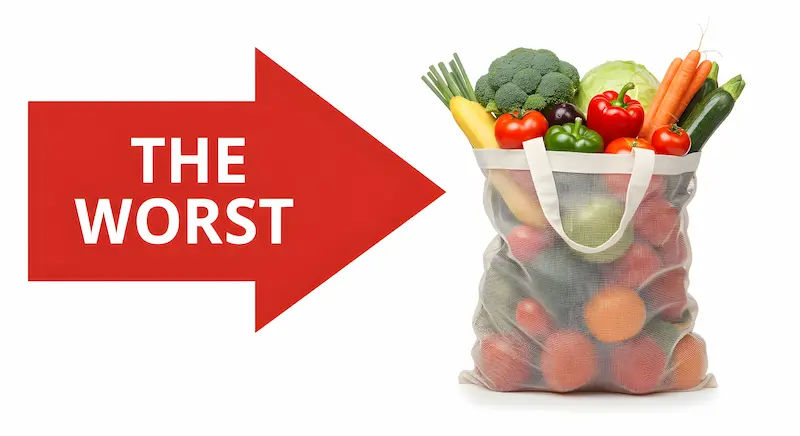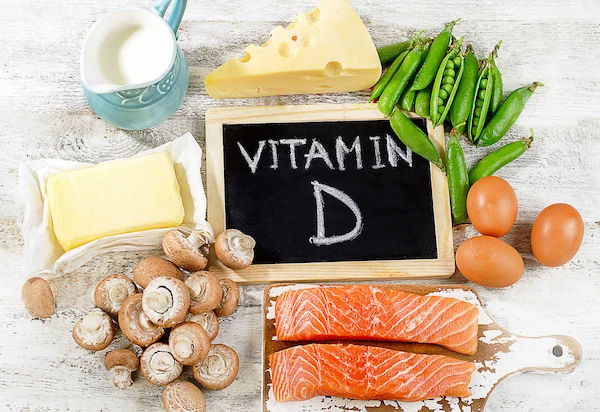Avocado: Amazing Health Benefits and Nutrition Facts
Explore avocado benefits and nutrition facts. Learn how healthy fats support heart health, weight, and wellness, plus easy ways to enjoy this superfood.


Introduction
Avocados are creamy, delicious, and packed with nutrition. If you’ve ever wondered what makes them special, the short answer is healthy fats, fiber, and a wide mix of vitamins and minerals. In this guide, you’ll learn science-backed avocado benefits, practical portion tips, and easy ways to add them to meals. Whether you’re seeking heart-healthy choices, weight-friendly foods, or simply curious about so-called superfoods, avocados can be a smart part of a balanced diet.
Why Avocados Matter?
Avocados are naturally low in sugar, rich in fiber, and a top source of monounsaturated fats—the “good” fats associated with heart health when they replace saturated fats. They also provide potassium, folate, vitamin K, vitamin E, and other nutrients that support overall wellness. Because they’re calorie-dense and satisfying, small amounts can go a long way.
A Snapshot of Avocado Nutrition (per 100 g, about half a medium avocado)
• Calories: about 160
• Total fat: about 15 g (mostly monounsaturated)
• Saturated fat: about 2 g
• Carbohydrates: about 8.5 g
• Fiber: about 6.7 g
• Protein: about 2 g
• Potassium: about 485 mg
• Folate: about 81 mcg DFE
• Vitamin K: about 21 mcg
• Vitamin E: about 2 mg
• Vitamin C: about 10 mg
• Sodium: about 7 mg
Top Science-Backed Avocado Benefits
1) Heart health support
• Avocados are rich in monounsaturated fats. Replacing foods high in saturated fat with unsaturated fats can help improve LDL (“bad”) cholesterol and support heart health.
• The fiber and potassium in avocados also support cardiovascular wellness. Potassium helps counteract sodium’s effects on blood pressure.
2) Weight and fullness
• Avocados are high in fiber and contain satisfying fats, which can help you feel full and support balanced eating patterns. Because they’re calorie-dense, mindful portions are key.
3) Blood sugar friendliness
• Avocados have very little sugar and a low carbohydrate content. Using avocado to replace refined carbohydrates in meals can help keep meals satisfying without spiking blood sugar.
4) Digestive and gut health
• The fiber in avocados supports regularity and feeds beneficial gut bacteria. Most people fall short of daily fiber goals, and avocados provide a convenient boost.
5) Eye, skin, and prenatal support
• Avocados contain lutein and zeaxanthin, carotenoids that support eye health.
• Vitamin E and healthy fats help the body absorb fat-soluble vitamins from other foods.
• Folate is important before and during pregnancy to support healthy fetal development.
Consult a Top Ayurveda Specialist for Personalised Advice
Healthy Fats in Avocado and Your Heart
“Healthy fats” generally refer to unsaturated fats: monounsaturated and polyunsaturated. Avocados provide mostly monounsaturated fat (oleic acid). Health authorities recommend replacing saturated fats (like those in fatty meats and many baked goods) with unsaturated fats to help improve blood lipid profiles.
Practical ways to apply this:
• Swap: Use mashed avocado on whole-grain toast instead of butter or cream cheese.
• Upgrade salads: Add avocado slices and use olive oil–based dressings instead of creamy, high-saturated-fat dressings.
• Build bowls: Top grain bowls with avocado instead of processed cheese or fried toppings.
Portion Guide: How Much Avocado Should You Eat?
• Because avocados are calorie-dense, a little goes a long way.
• A sensible portion for many people is about one-third to one-half of a medium avocado at a time (roughly 50–100 g).
• If you’re watching calories, start with 1–2 tablespoons of mashed avocado as a spread or topping and adjust based on your overall meal.
Avocado Benefits for Weight Management
• Avocados can fit into weight-loss or weight-maintenance plans because:
• They provide fiber and satisfying fats, which can help curb between-meal snacking.
• Their low sugar content keeps meals balanced.
• Portion awareness matters: pair avocado with protein and high-fiber vegetables to build filling, nutrient-dense meals.
Blood Pressure and Potassium
• Potassium helps balance the effects of sodium on blood pressure. Avocados are a good source of potassium while being naturally low in sodium. Pairing avocados with a diet rich in vegetables, fruits, whole grains, legumes, nuts, seeds, fish, and unsaturated oils can support healthy blood pressure and overall heart health.
Digestive Health and Fiber
• Most adults benefit from more dietary fiber. Avocados provide about 7 grams of fiber per 100 grams, both soluble and insoluble types, which support regularity and a healthy gut environment when combined with a varied, plant-forward diet and adequate fluids.
Are Avocados Good for Blood Sugar?
• Avocados contain minimal sugars and carbohydrates, so they have a low glycemic impact. Replacing refined carbs (like white bread or sugary snacks) with avocado-containing options can help build steadier, more satisfying meals. People with diabetes can include avocados as part of personalized meal planning.
Nutrients That Stand Out in Avocados
• Monounsaturated fats: Support heart health when replacing saturated fats.
• Fiber: Aids digestive health and helps you feel full.
• Potassium: Supports normal blood pressure.
• Folate: Important for cell growth and pregnancy.
• Vitamin K: Supports normal blood clotting and bone health.
• Vitamin E: An antioxidant that protects cells from oxidative stress.
• Carotenoids (lutein and zeaxanthin): Support eye health.Consult a Top Ayurveda Specialist for Personalised Advice
Easy, Healthy Ways to Add Avocado to Your Day
• Breakfast: Slice over whole-grain toast with a squeeze of lemon and chili flakes; add to omelets with vegetables.
• Lunch: Dice into salads, grain bowls, or wraps; blend into a yogurt-lime dressing.
• Snacks: Mash with salsa, cilantro, and lime for a quick guacamole served with veggie sticks or whole-grain crackers.
• Dinner: Add cubes to bean-and-corn salads; top tacos or baked fish; blend into a creamy, dairy-free pasta sauce with garlic and herbs.
• Smoothies: Blend a small piece for creaminess with spinach, frozen berries, and milk of choice.
Shopping and Storage Tips
• Selection: Choose avocados that yield slightly to gentle pressure and have no large soft spots. If buying ahead, pick firmer fruit and let it ripen at room temperature.
• Speed ripening: Place avocados in a paper bag with a banana or apple for 1–2 days.
• Slow ripening: Once ripe, refrigerate whole avocados for 2–3 days.
• Storing cut avocado: Sprinkle it with lemon or lime juice, cover tightly (or press plastic wrap directly on the surface), and refrigerate. Use within 1–2 days. Some browning is normal and can be scraped away.
Who Should Be Cautious?
• Calorie needs: If you’re aiming to reduce calorie intake, watch portion sizes because avocados are energy-dense.
• Potassium-restricted diets: People with certain kidney conditions may need to limit high-potassium foods. Follow your clinician’s guidance.
• Vitamin K and medications: Avocados contain vitamin K. If you take warfarin (Coumadin), keep vitamin K intake consistent and consult your healthcare provider.
• Latex-fruit allergy: People with latex allergy may also react to certain fruits, including avocado. Seek medical advice if you suspect an allergy.
Are Avocados Superfoods?
While “superfoods” isn’t a scientific term, avocados certainly pack several nutrients—healthy fats, fiber, and key vitamins and minerals—in a versatile, tasty package. The biggest wins come from your overall dietary pattern: regularly choosing a variety of vegetables, fruits, whole grains, legumes, nuts, seeds, and healthy fats.
Putting It All Together
• Avocados can support heart health when they help replace saturated fats with unsaturated fats.
• Their fiber and low sugar content make meals more satisfying.
• They offer helpful nutrients like potassium, folate, vitamin E, vitamin K, and carotenoids.
• Choose sensible portions and pair them with other nutrient-dense foods.
• Enjoy them as part of a balanced, varied eating pattern for the most benefit.
Consult a Top Ayurveda Specialist for Personalised Advice

Dr. Pepsy Jose
Panchakarma Practitioner
14 Years • BAMS, MD Ayurveda (Panchakarma)
Bengaluru
AYURRHYTHM HOLISTIC CLINIC AND PANCHAKARMA THERAPY, Bengaluru

Dr. Rik Sadhukhan
Ayurveda Practitioner
8 Years • BAMS
Kolkata
Vedhive Ayurveda, Ballygunge, Kolkata

Dr. Anjan Das
Ayurveda Practitioner
8 Years • Ayurvedacharya ( B.A.M.S )
Dumdum
Vedhive Ayurveda Clinic, Dumdum

Dr. Shiv Prakash Singh
Ayurveda Practitioner
19 Years • BAMS
Kolkata
Vedhive Ayurveda College Street, Kolkata
Consult a Top Ayurveda Specialist for Personalised Advice

Dr. Pepsy Jose
Panchakarma Practitioner
14 Years • BAMS, MD Ayurveda (Panchakarma)
Bengaluru
AYURRHYTHM HOLISTIC CLINIC AND PANCHAKARMA THERAPY, Bengaluru

Dr. Rik Sadhukhan
Ayurveda Practitioner
8 Years • BAMS
Kolkata
Vedhive Ayurveda, Ballygunge, Kolkata

Dr. Anjan Das
Ayurveda Practitioner
8 Years • Ayurvedacharya ( B.A.M.S )
Dumdum
Vedhive Ayurveda Clinic, Dumdum

Dr. Shiv Prakash Singh
Ayurveda Practitioner
19 Years • BAMS
Kolkata
Vedhive Ayurveda College Street, Kolkata
More articles from General Medical Consultation
Frequently Asked Questions
1) Are avocados good for weight loss?
Yes, they can be. Avocados provide fiber and healthy fats that help you feel full and satisfied. Because they’re calorie-dense, portion awareness is important—try one-third to one-half of a medium avocado per meal, depending on your needs.
2) Are avocados heart-healthy?
Avocados are rich in monounsaturated fats. Replacing foods high in saturated fat with unsaturated fats (like those in avocados, nuts, seeds, and olive oil) can improve cholesterol balance and support heart health as part of an overall healthy diet.
3) How much avocado should I eat per day?
There isn’t a single “right” amount. Many people enjoy about one-third to one-half of a medium avocado daily, depending on total calorie needs and how much fat they eat from other sources. Listen to your hunger cues and balance your plate with vegetables, protein, and whole grains.
4) Can people with diabetes eat avocados?
Yes. Avocados are low in sugar and carbohydrates and have a low glycemic impact. They can help make meals more filling when used to replace refined carbohydrates. If you manage diabetes, work with your healthcare team to fit avocados into your meal plan.
5) Is avocado a superfood?
“Superfood” is a marketing term, not a medical one. Still, avocados offer a lot of nutrition—healthy fats, fiber, potassium, folate, vitamin E, and carotenoids. They’re a great addition to a balanced diet, but no single food is a cure-all.
 Ayurvedic Uses and Benefits.webp)



